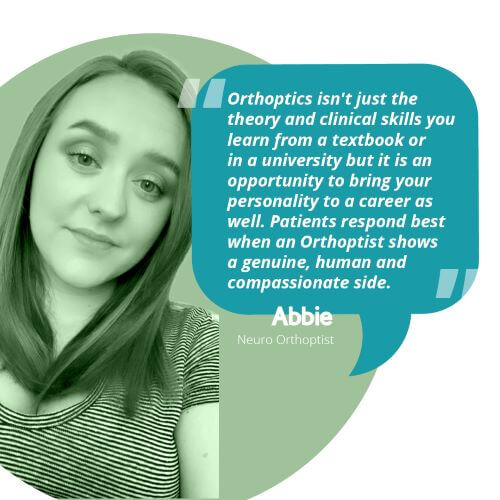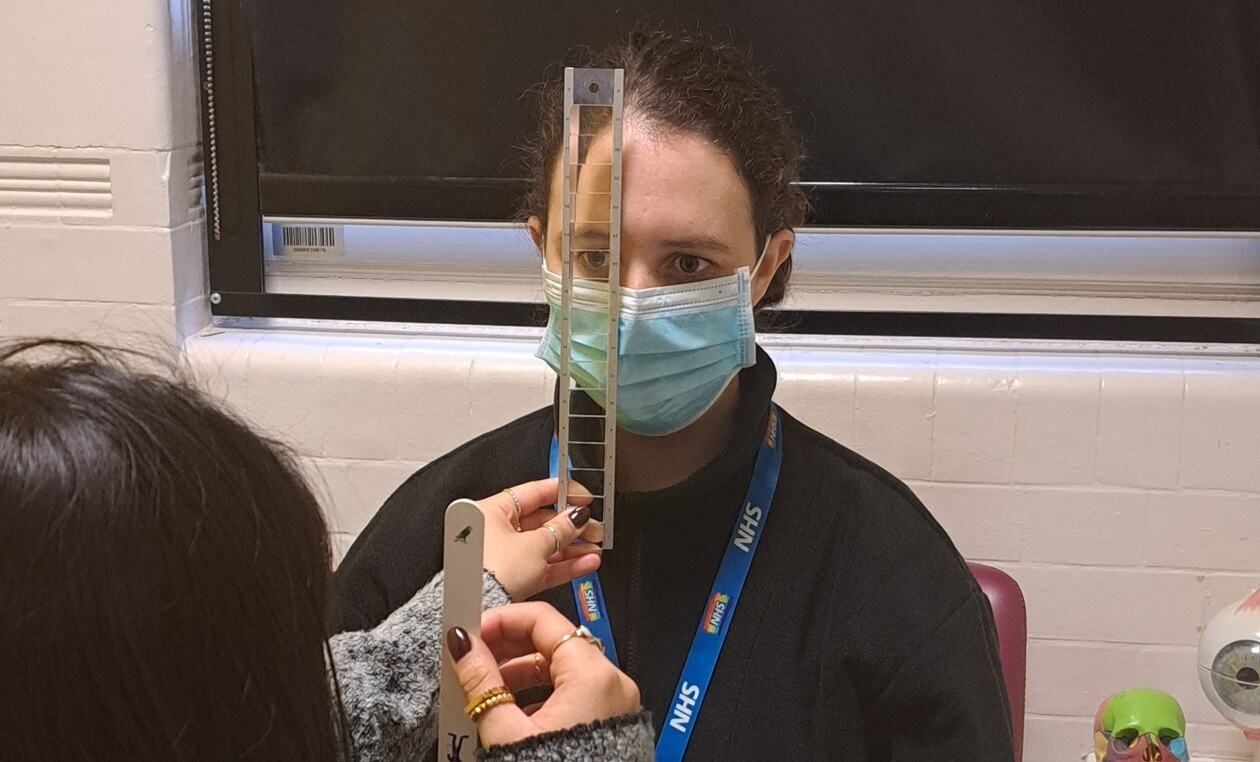
How do I become an orthoptist?
If you enjoy science, working with people of all ages and would relish the challenge of problem solving and making decisions independently, orthoptics could be the career for you!
On our careers pages you will find all the information you need if you are looking to become an Orthoptist, including what skills and qualifications you will need, how you can finance your degree, what you can expect to earn and, most importantly, what will you actually be doing …
What’s it like being an orthoptist?

Orthoptist Stories
Click on our orthoptist’s stories below, to hear what a career in orthoptics means to them, as well as what a typical day looks like, demonstrating the breadth of opportunities available as an orthoptist!
How do I find out if orthoptics is for me?
First things first, its essential that you decide whether orthoptics is the right career for you. The best way to learn about what an Orthoptist actually does is going and seeing for yourself.
BIOS have a specific Work Shadow Lead, whose job it is to help arrange for prospective students to shadow an orthoptist and see what it is they do day to day. You can find out more about this, including who to contact, on our work shadowing page.
I’m interested, how do I become one?
To become an orthoptist, you require a degree in orthoptics. You can find out more about the course, including where you can study, here.
The entry requirements vary for each university so please check their websites for more detail.
- The general requirements for an undergraduate degree are that you must have good GCSE Maths, English and Science grades and A levels/Highers or equivalent, with at least one science subject such as Biology, Maths, Physics or Chemistry. Alternative qualifications are considered and mature students are welcome to apply.
- Those coming from Ireland would require 6 Higher Level subjects including one science. Two subjects should be graded at H2 or higher (this should include a Science subject) and the remaining four subjects should be graded at H3 or higher.
- If you already have an undergraduate degree in a relevant subject (such as biological sciences, chemistry, nursing or psychology), you can now take a two year MSc course, at UCL or the University of Liverpool, providing the same essential knowledge and skills via an accelerated route.
- If you do not have the relevant academic background, there are options to study a Foundation Year degree or Access to Higher Education Diploma in Science prior to commencing the Orthoptic degree. Further details about Foundation Year degrees can be found on the websites of the University of Sheffield and the University of Liverpool.
Interested in finding out more? Try this interactive free course.
Explore all aspects of the orthoptics profession – from the conditions orthoptists investigate to the exciting career prospects.
Sign up to the ‘limited access’ plan for free access to the three-week course here.

